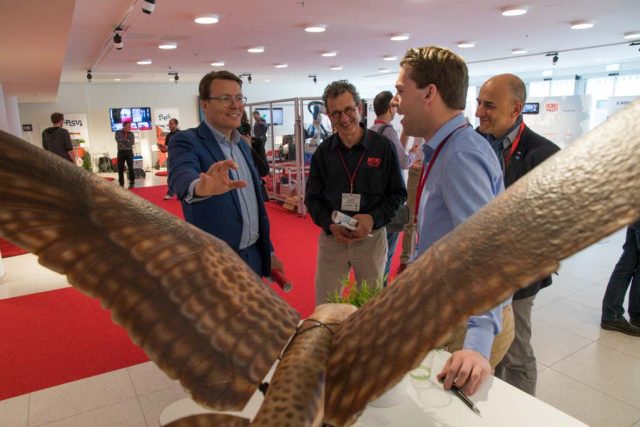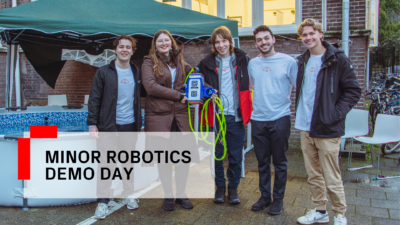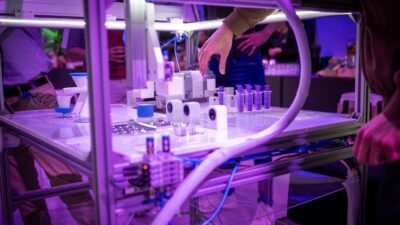A lot is happening in the Dutch field of high-tech. All conditions are present for robotics start-ups to become leaders in their respective fields. For this to happen, it is necessary for these start-ups to surround themselves with advisers who have a sense of enterprise. It is also important for Dutch investors to invest in promising companies. So says Special Envoy Prince Constantijn of StartupDelta in an interview with RoboValley. “Put your money where your robots are.”
We spoke with the prince in the RoboValley pavilion during the International Robotics Week. He is impressed by what he saw. “I think it’s good that every aspect of robotics is shown. During the opening, the ethical aspects of robotics were exposed. It wasn’t just a celebration of robotics, it also looked at potential risks and that you have to take those into account early on. That created a beautiful balance.”
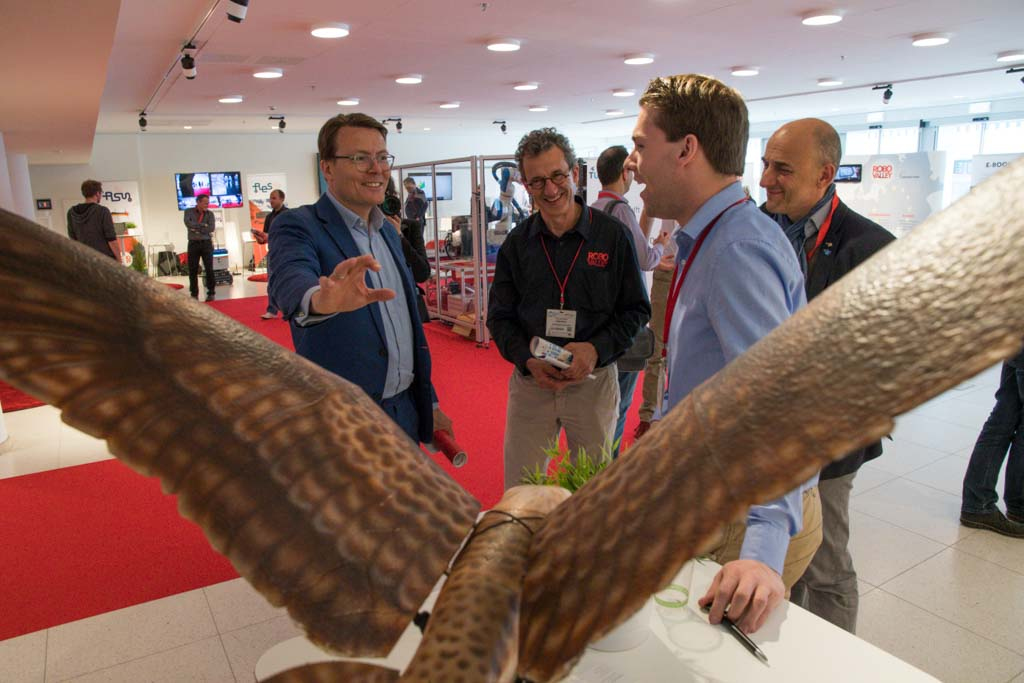
Dutch design
Constantijn liked seeing various drones and robots right as he entered the World Forum. Many of these robots were ‘made in Holland’. “Things that fly and drive. Very concrete examples.” On top of that, they looked polished. “Prototypes often look like they have been taped together, but these look very appealing.”
It is important that the International Robotics Week takes place in the Netherlands for a variety of reasons, according to the prince. The first reason is awareness in our own country. “Apparently, we are doing something right. Otherwise all these visitors and participants wouldn’t be here.” This also means that investors will realise that a lot of interesting things are happening in the Netherlands. “This provides researchers with the opportunity to expand their networks in ways that would otherwise not be possible.”
It is also important to show foreign companies that an international event like RoboBusiness – originally from Silicon Valley – chooses to hold a European congress in the Netherlands. “That is a signal to American investors and other technology companies that the Netherlands is an interesting country in the field of robotics. I think that is very important.”
Healthcare robotics and drones
Regarding Dutch robotics start-ups, Constantijn notices that a lot is happening in the field of healthcare. “I see many companies in the medical field that are a bit further. The market and the players are more clearly defined there.” A lot is happening in the field of drones as well. “I really like that it often regards application. Nobody defines themselves as a drone company, they instead refer to themselves as the field they are active in. Like inspection of infrastructure, for example. I think it’s great that things are moving in that direction.”
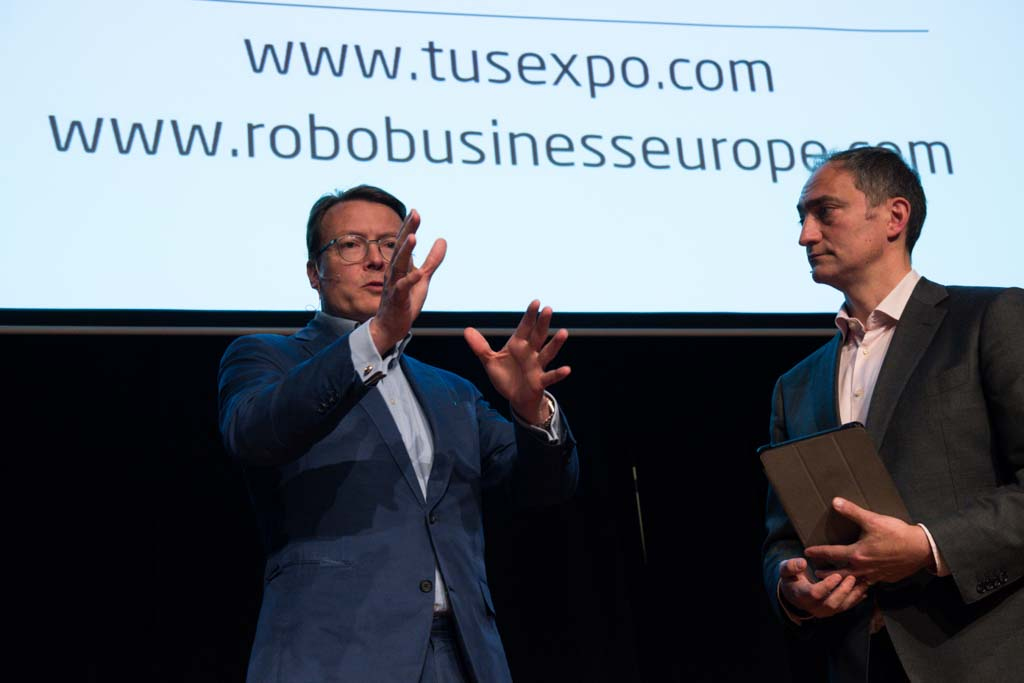
It is important to link robotics to various areas of application. “We are at a point where many separate elements are coming together. Large enterprises aren’t forming yet, but you do see companies that have the potential to grow.”
Financing
At the same time, there is still a “big need” when it comes to financing start-ups. They are readier to do this in Silicon Valley, though it took them a long time before they embraced robotics. In the United States, investors are willing to take risks and they are more patient. There is also more guidance on the business side, which starts at the universities. This creates more mutual understanding, leading to better funding.
In the Netherlands, getting financed is a ‘chore’ where start-ups often encounter new hurdles. For example, because certain parties only want to invest once. “Each attempt at this is a huge barrier that you have to bridge. This process should be easier.”
Hesitance
It is one of the challenges StartupDelta faces. Constantijn sees that the government is dealing with this challenge as well, because the problem is also known in the so called top sectors. “The top sector high-tech is starting its own fund, so there is some movement.” At the same time, the Special Envoy sees that there is still a lot of hesitance. Dutch investors, among which the large pension funds, are reluctant to invest in robotics and are waiting to see what the others do.
This results in a catch-22 situation, which causes nothing to happen. “Nobody is willing to take the reins”, says Constantijn. He therefore asks Dutch, but also European investors to take the first step. “Put your money where your robots are.”
Think big!
We have an excellent starting position. “We have the knowledge, we have the four technical universities, the large companies and the required infrastructure. Dutch people are very pragmatic in their work. On top of that, this is a great place to live.” It is important that the universities, regional governments and enterprises collaborate in the field of robotics. “Productivity increases when various sectors in the Netherlands support each other and not compete with one another. We have to look at China and Asia and what is happening there.”
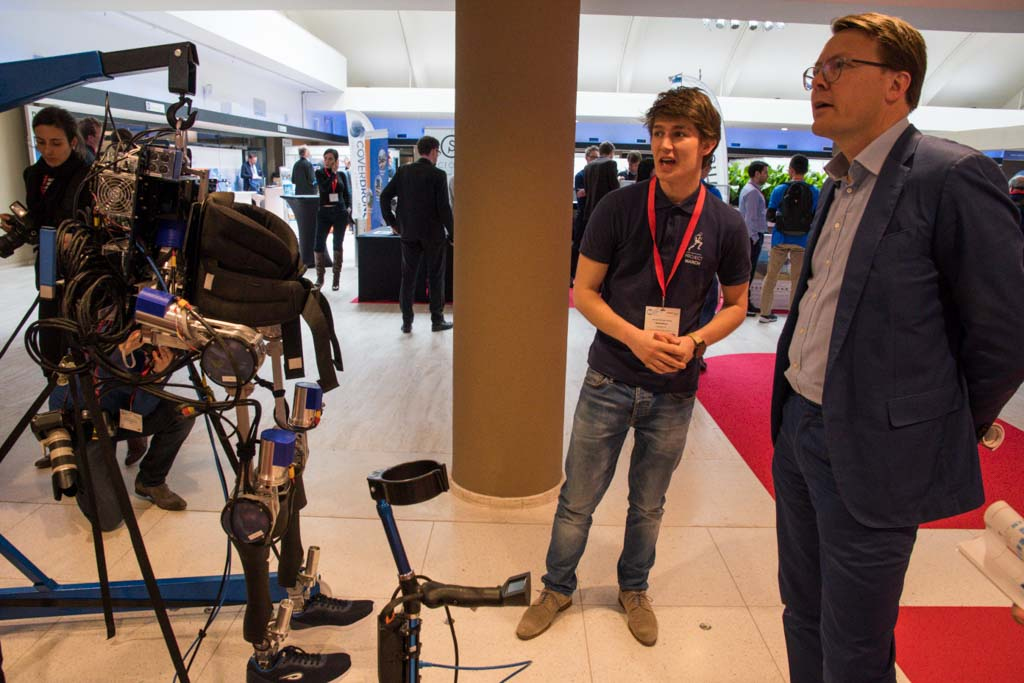
Entrepreneurs
The prince advises start-ups in the field of robotics to talk to a good entrepreneur. “Learn from them, don’t try to do it all on your own.” Even the best technologies still require someone who knows how the government works, who knows the market and who has the network required to do this. “Otherwise, you lose a lot of time on this while you are still developing your product.”
“There are few people that both develop technology and are good at doing business, like Bill Gates and Mark Zuckerberg” says the prince. “If you are not one of them, make sure you attract good advisers. People straight from the business world that can act as mentor.”
